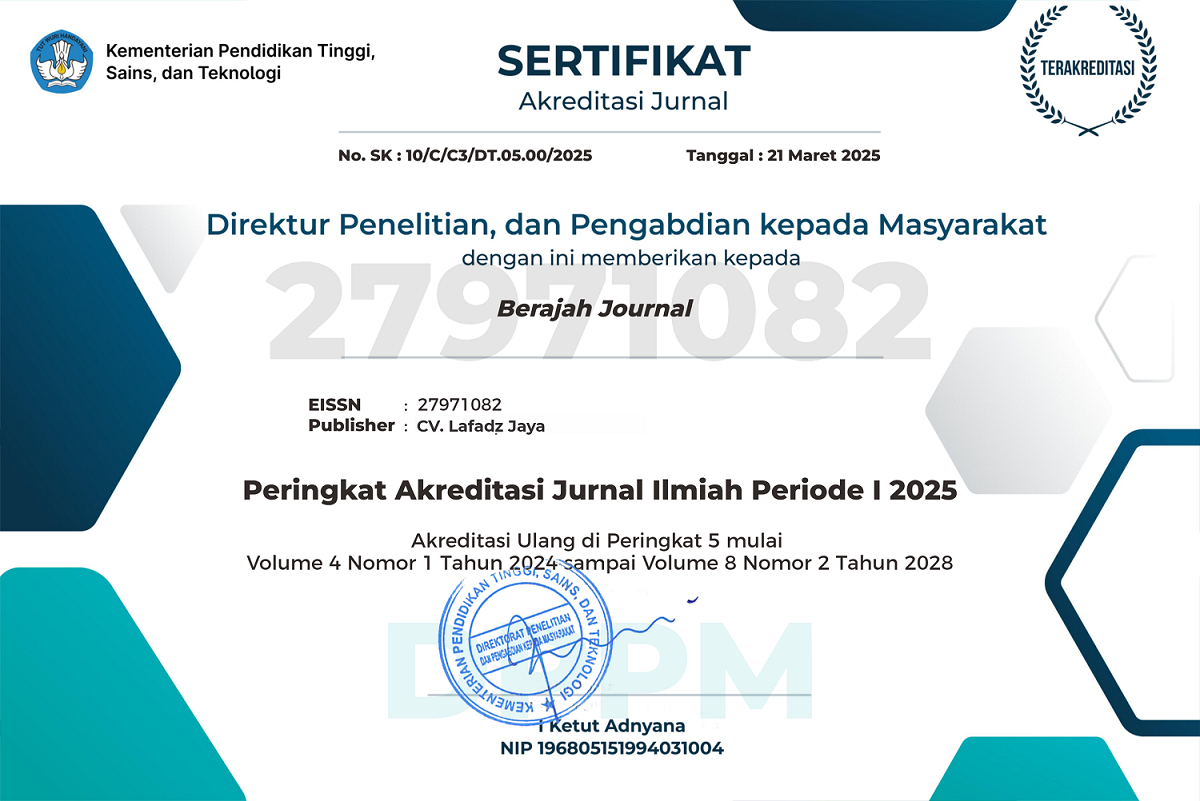EVALUASI KEBIJAKAN PENGELOLAAN SAMPAH PLASTIK DI KOTA SEMARANG
DOI:
https://doi.org/10.47353/bj.v5i2.594Keywords:
policy evaluation, plastic waste, floodingAbstract
The population growth in Semarang City over the years has directly contributed to the increasing volume of waste, particularly plastic waste, which is non-biodegradable and harmful to the environment. Between 2020 and 2024, data indicates a significant rise in plastic waste generation alongside more frequent flooding, particularly in densely populated areas and along riverbanks. This study aims to evaluate the effectiveness of plastic waste management policies in Semarang City by applying William N. Dunn’s (2018) policy evaluation framework, which includes five dimensions: effectiveness, efficiency, adequacy, equity, and responsiveness. A qualitative approach was used, employing a literature review, policy document analysis, and spatial data visualization (heatmaps) to identify correlations between flood-prone areas and plastic waste accumulation. The findings reveal that despite the issuance of several local regulations on plastic reduction and waste management, implementation faces persistent challenges, such as low public participation, inadequate waste transportation infrastructure, and weak enforcement on businesses and industries. Evaluation through Dunn’s five dimensions indicates that the policy has not yet achieved optimal effectiveness and efficiency, as its direct impact on reducing plastic waste and mitigating flood risks remains limited. This research recommends renewing more adaptive policies, strengthening institutional capacity, and integrating spatial data-based waste management systems as strategic steps for sustainable improvement.
Downloads
References
Addario, Rosella. 2021. Digital Government for Public Value: Putting People First. Paris: OECD Publishing.
Badan Pusat Statistik (BPS) Kota Semarang. 2021. Kota Semarang Dalam Angka 2021. Semarang: BPS Kota Semarang.
———. 2022. Kota Semarang Dalam Angka 2022. Semarang: BPS Kota Semarang.
———. 2023. Kota Semarang Dalam Angka 2023. Semarang: BPS Kota Semarang.
———. 2024. Kota Semarang Dalam Angka 2024. Semarang: BPS Kota Semarang.
Dunn, William N. 2018. Public Policy Analysis: An Integrated Approach. 6th ed. New York: Routledge.
Gupta, Sanjeev, Hamid Davoodi, dan Rosa Alonso-Terme. 2004. “Does Corruption Affect Income Inequality and Poverty?” Economics of Governance 3(1): 23–45. https://doi.org/10.1007/s10101-002-0060-6
Handayani, Rini, dan Eka Wulandari. 2020. “Evaluasi Program Pengelolaan Sampah Plastik di Kota Surakarta.” Jurnal Ilmu Lingkungan 18(2): 115–124. https://doi.org/10.14710/jil.18.2.115-124
Indrajit, Richardus Eko. 2002. Electronic Government: Strategi Pembangunan dan Pengembangan Sistem Pelayanan Publik Berbasis Teknologi Digital. Yogyakarta: Andi.
Kementerian Lingkungan Hidup dan Kehutanan (KLHK). 2020. Sistem Informasi Pengelolaan Sampah Nasional (SIPSN). Jakarta: KLHK. https://sipsn.menlhk.go.id/
Moore, Mark H. 1995. Creating Public Value: Strategic Management in Government. Cambridge, MA: Harvard University Press.
Putri, Ayu N., dan Bambang S. Nugroho. 2018. “Manajemen Sampah dan Dampaknya terhadap Banjir di Wilayah Pesisir Kota Semarang.” Jurnal Teknik Sipil dan Perencanaan 20(1): 33–42. https://doi.org/10.14710/jtsp.20.1.33-42
Rahmawati, Diah, dan Supriyanto Hadi. 2022. “Implementasi Kebijakan Pengurangan Plastik Sekali Pakai di Tingkat Daerah.” Jurnal Administrasi Publik 13(1): 45–56. https://doi.org/10.20473/jap.v13i1.2022.45-56
Setyowati, Nina, Budi Santoso, dan Endang Wahyuningsih. 2021. “Hubungan Timbulan Sampah Plastik dan Banjir Perkotaan: Studi Kasus Kota Semarang.” Jurnal Tata Ruang dan Lingkungan 9(2): 89–101. https://doi.org/10.31289/jtrl.v9i2.2021Syahputra, Muhammad Rizki. 2019. “Evaluasi Kebijakan Pengelolaan Sampah Plastik Berbasis Partisipasi Masyarakat di Kota Medan.” Jurnal Kebijakan dan Administrasi Publik 23(3): 203–215. https://doi.org/10.20473/jkap.v23i3.2019.203-215
World Bank. 2002. World Development Report 2002: Building Institutions for Markets. Washington, DC: The World Bank.
Zambrano-Monserrate, Manuel A., María Alejandra Ruano, dan Luis Sanchez-Alcalde. 2020. “Indirect Effects of COVID-19 on the Environment.” Science of the Total Environment 728: 138813. https://doi.org/10.1016/j.scitotenv.2020.138813
Downloads
Published
How to Cite
Issue
Section
License
Copyright (c) 2025 Aji Primanto, Linda Puspitasari

This work is licensed under a Creative Commons Attribution 4.0 International License.






















